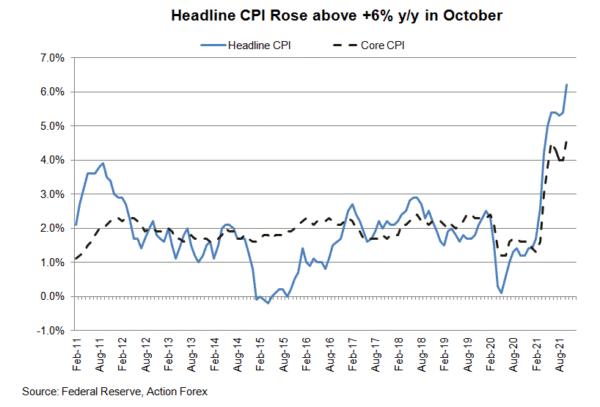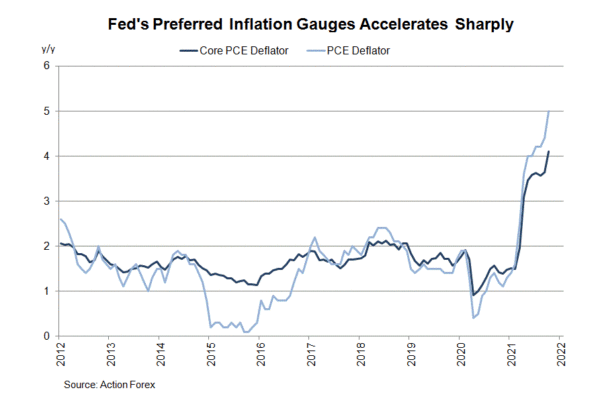Despite concerns over the new coronavirus variant Omicron, Fed Chair Jay Powell’s testimony before the Senate was hawkish. He suggested that the Fed could accelerate the tapering of asset purchases in order to curb strong inflation. US dollar extended rally against major currencies, with the exception of Japanese yen and Swiss franc.
The testimony is a timely one as the market speculates Fed’s monetary policy outlook amidst the new coronavirus variant and the recent financial market crash. The Fed chair acknowledged that inflation pressures “have spread much more broadly” and that “the threat of persistently higher inflation has grown. He emphasized the importance of “stable prices” to the economy so as to maintain expansion of the job market.
Indeed, inflation has show no signs of abating since the last FOMC meeting.Headline CPI soared above +6% y/y in October. The Fed’s preferred inflation gauge, PCE deflator accelerated to +5% y/y in October, from +4.4% a month ago. The core reading also increased to +4.1% from +3.6% in September. University of Michigan’s survey revealed that inflation expectations in the near-term (1 year) rose to a new 13-year high of +4.9% y/y, while the medium- to long-term (5-10 years) inflation increased +3% y/y. Both are above the Fed’s +2% target.


Rather pushing back the schedule of tapering, Powell reiterated several times that discussion about accelerating QE tapering at would be made at the December meeting. As he indicated, the central bank is “going to have a conversation at our next meeting about accelerating the taper and ending our asset purchases a few months early”. He added that “every dollar of asset purchases does increase accommodation” and that the Fed now looks at “an economy that is very strong and inflationary pressures that are high”.
The greenback firmed against major currencies, with the exception of Japanese yen and Swiss franc. This is driven by both safe-haven demand as well as hawkish comments made by the Fed chair.
